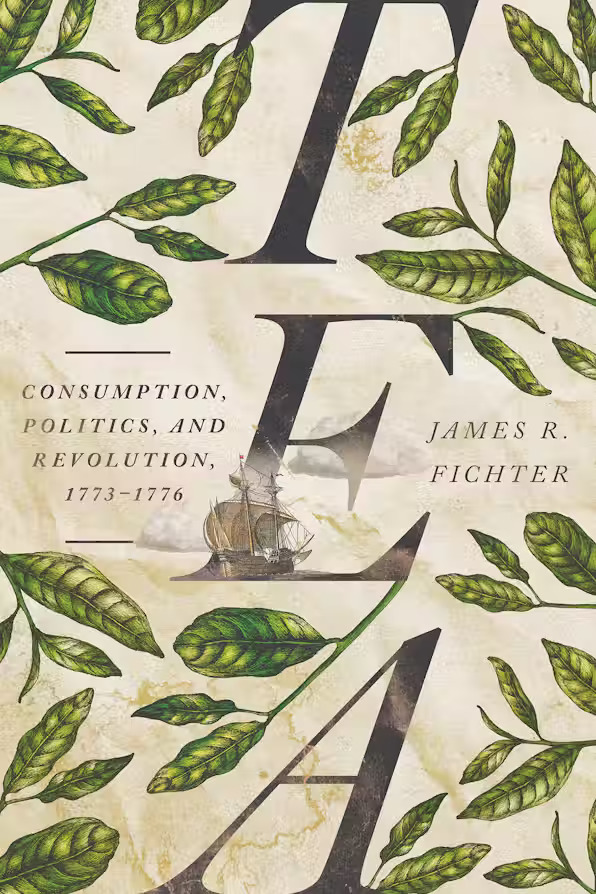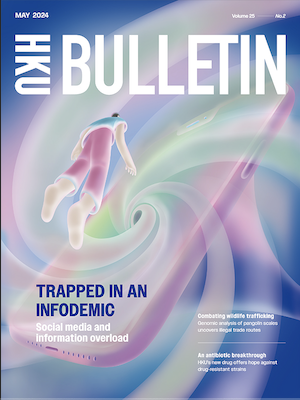May 2024 | Volume 25 No. 2
Storm in a Teacup?
Listen to this article:
The generally accepted image of the Boston Tea Party is of defiant colonists dumping crates of tea belonging to the East India Company into Boston Harbour in protest at British taxes on tea. Then they opposed the goods themselves, boycotting tea and British products, and ultimately revolting from British rule all because of their opposition to taxation without representation.
However, author James R Fichter, Associate Professor and Programme Director of Global and Area Studies at HKU’s School of Modern Languages and Cultures, argues in his new book – Tea: Consumption, Politics, and Revolution, 1773–1776 – that the reality was more complex.
“Some of the Company’s tea shipments survived, and while some colonists destroyed tea, others still drank it,” he explained. “The boycott was hard to maintain and utterly collapsed. Tea smuggling was widespread, and various excuses allowed colonists to buy, sell, and drink tea openly. It was sometimes allowed as a medical remedy (or maybe a ‘medical’ remedy). Tea seized from British ships and soldiers was drunk as a prize of war. In 1776, Congress repealed its ban on tea, reasoning that the ban was so widely ignored as to be irrelevant.”
The idea for the book came about in the 2010s, when Professor Fichter was researching an article on tea advertising, and was puzzled to see that the same newspapers that contained articles about tea protests or essays declaring that no one should or did drink tea anymore, also contained advertisements for tea.
“The contradiction between the advertisers on the one hand, and the newspaper editors on the other was striking, and it repeated over and over,” he said. “This compelled me to ask what people really thought and did about this? Did the essays and newspaper articles speak for the public more than the advertisers spoke to the public?”
Shipments survived
Further research revealed that two shipments of tea survived the Tea Party, and not only survived but were traded and consumed. “Two of the seven shipments of tea sent by the East India Company survived and were sold, despite the Boston Tea Party,” said Professor Fichter. “The tea’s survival and the threat of its sale made the Boston Port Act and the response to it even more of an all-or-nothing conflict than has been previously understood. And that tea’s eventual sale reveals that tea was not nearly as unpopular as Patriots would have us believe.”
The whereabouts of those two shipments became one of the great mysteries of the research and uncovering the answer, one of Professor Fichter’s favourite anecdotes. “I wanted to find out what happened to the tea the East India Company sent to Boston on the [tea ship] William. I knew it had been stored in Castle William in January 1774, and that British engineers blew up the castle when they evacuated in March 1776. I searched far and wide for any source on the tea or the castle between those dates,” he said.
“In the end, I discovered the tea’s fate in the most obvious place: the East India Company’s own records. Historians of the Boston Tea Party had been using Company records for a century, and just missed it. It was a triumph, but I also felt a little foolish for not checking this earlier. It’s always in the last place you look!”
Until now, the protests in 1774 of ‘consumers who refused to consume’ have been interpreted as ways colonists (especially women) who were not normally engaged in politics could be political. The book re-reads these protests instead as the Patriot struggle to politicise consumption. “When ‘tea parties’ were held nearly a year after the Boston Tea Party, there was still tea to destroy,” noted Professor Fichter. “The prevalence of tea advertising in 1774 suggests efforts to get colonists to join the boycott were only partially successful. Boycotts are often ineffective and collapse, as this one did. So, it wasn’t a way to see the broad American public opposing Parliament. It was a way to see the broad American public ignoring Parliament and Congress.”
Looking to the future, Professor Fichter is keen to take the research further. “Loyalists are one of the most understudied and important topics in the American Revolution,” he said. “While Loyalist studies is a thriving sub-field, the study of Loyalists remains somewhat relegated to this and is thereby too easily ignored by historians wanting to write the Revolution as the history of the making of America. This is now changing, but there is more to be done. Further integration of Loyalist voices and sensibilities as part of the panoply of ‘normal’ views people held is an important step toward understanding the range of colonial perspectives, from Patriot to Loyalist to both and neither.”

Tea: Consumption, Politics, and Revolution, 1773–1776
Author: James R Fichter
Publisher: Cornell University Press
Year of Publication: 2023
The tea’s survival and the threat of its sale made the Boston Port Act and the response to it even more of an all-or-nothing conflict than has been previously understood.

Professor James R Fichter

